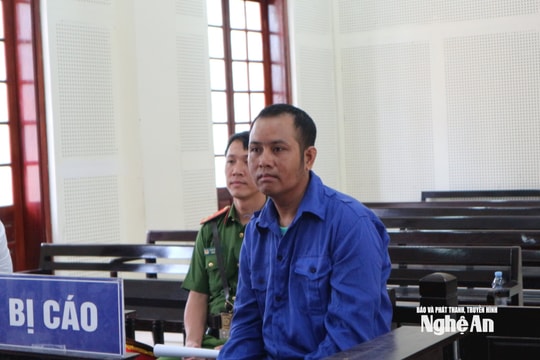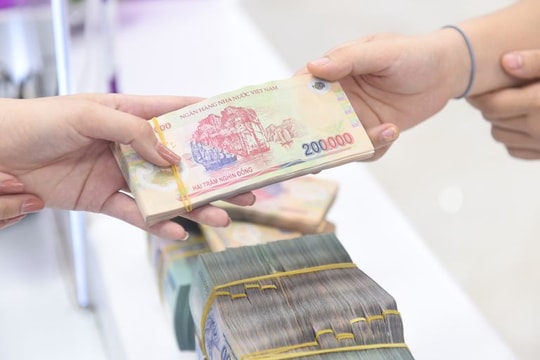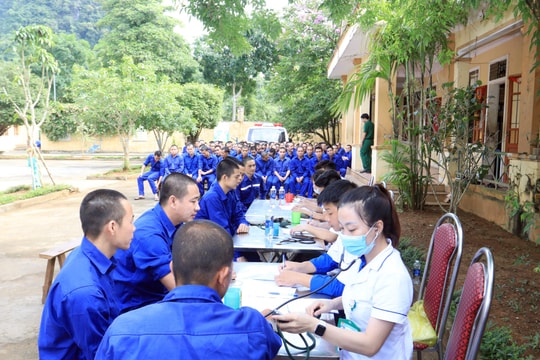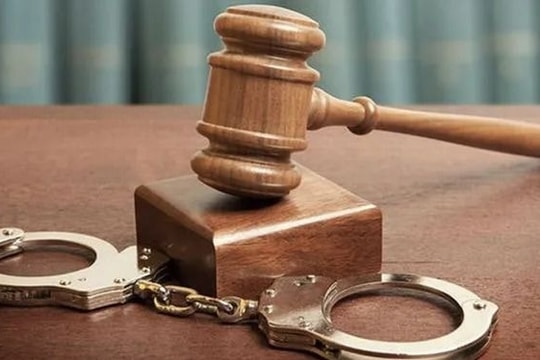10 laws take effect from today, January 1
The 2015 Penal Code, the 2015 Criminal Procedure Code, the 2015 Law on Organization of Criminal Investigation Agencies... all take effect from today.
Penal Code 2015
The 2015 Penal Code, effective from January 1, 2018, abolished the following 11 crimes: Illegal business; Intentionally violating State regulations on economic management, causing serious consequences; False reporting in economic management; Banditry; Child marriage; Illegal marriage registration; Violation of regulations on granting certificates of protection of industrial property rights.
The new law also abolishes the death penalty for five crimes: robbery; production and trade of counterfeit food, foodstuffs, and food additives; surrendering to the enemy; disobeying orders; and destruction of important works, facilities, and means related to national security.
The 2015 Penal Code added 34 crimes, including: Using people under 16 years old for pornographic purposes; Evading payment of social insurance, health insurance, and unemployment insurance for employees; Violating regulations on management and use of State assets, causing loss and waste.
The 2015 Penal Code for the first time includes commercial legal entities in the scope of criminal prosecution for a number of specific crimes such as: Smuggling; Tax evasion; Fraud in insurance business...
Criminal Procedure Code 2015
This Code has adjusted the content of 25 principles in the 2003 Code and added 5 new principles to better ensure human and citizen rights, including: Vietnamese citizens cannot be deported or extradited to another country; Presumption of innocence; No one can be convicted twice for the same crime; Ensuring inspection and supervision within the system of each prosecution agency and mutual control between prosecution agencies.
The 2015 Criminal Procedure Code adds 9 categories of participants in the proceedings, including: the person who reports crimes, reports information about crimes, and requests for prosecution; the person who is denounced or requested for prosecution; the person detained in an emergency; the person who is arrested, witnesses, appraisers of assets, translators; the person who protects the legitimate rights and interests of the person denounced or requested for prosecution; and the legal representative of the legal entity committing the crime.
Law on Organization of Criminal Investigation Agencies 2015
Compared with the 2004 Ordinance, this law adds a number of the following prohibited acts:
- Falsifying case files; wrongly convicting innocent people or letting criminals escape; illegally interfering in criminal investigations.
- Forced confession, torture; infringing upon the legitimate rights and interests of agencies, organizations and individuals.
- Obstructing the right to defense of arrested people, detainees, and defendants; the right to complaint and denunciation of others.
- Obstructing defenders and legal aid providers from providing defense and legal aid in accordance with the provisions of law.
This Law also adds agencies assigned to conduct a number of investigative activities such as: High-tech Crime Prevention Police Department (at the ministerial level); High-tech Crime Prevention Police Department (at the provincial level); Fisheries Control agencies (Fisheries Control Department, Regional Fisheries Control Sub-Department).
Law on Legal Aid 2017
This law adds 14 cases eligible for legal support, including: children, the poor, the disabled, the elderly, people with HIV, people infected with Agent Orange, victims of domestic violence, people with revolutionary contributions, accused people from 16 to under 18 years old,...
The 2006 Law on Legal Aid does not specify the number of years of experience for legal consultants. However, the 2017 Law on Legal AidAdditional condition: legal consultants must have 2 years or more of legal consulting experience.
Under the new law, people receiving legal aid do not have to pay money, material benefits or other benefits; are required to keep the content of the legal aid case confidential; are allowed to change or withdraw their request for legal aid...
Law on Temporary Detention and Imprisonment 2015
This Law clearly stipulates the basic rights of detainees, including: protection of life and property; guaranteed food, clothing and accommodation; dissemination of their rights and obligations; meeting with legal representatives to conduct civil transactions; requesting release upon the end of the detention period, temporary detention period...
The detention and temporary detention regime for people under 18 years old, pregnant women or women raising children under 36 months old is also specifically regulated, especially the regime of care and nurturing of children under 36 months old living with their mothers in detention and temporary detention houses.
Compared with the Regulations on temporary detention and imprisonment, this law provides more specific regulations on the organizational system of management agencies and agencies implementing temporary detention and imprisonment.
Law on Support for Small and Medium Enterprises 2017
The Law on Support for Small and Medium Enterprises 2017 allows small and medium enterprises to temporarily apply a corporate income tax rate lower than the normal tax rate applied to enterprises according to the provisions of the law on corporate income tax.
Micro enterprises are subject to simple tax administrative procedures and accounting regimes in accordance with the provisions of the law on tax and accounting. Small and medium enterprises are also supported in terms of production premises, technology, market expansion, human resource development as well as information, advice and legal support.
The Law on Support for Small and Medium Enterprises 2017 also amends and supplements the business lines eligible for investment incentives of the Investment Law 2014 and the Bidding Law 2013.
Law on Management and Use of Public Assets 2017
The Law expands the scope of regulation to all types of public assets stipulated in Article 53 of the 2013 Constitution, including: land, water resources, mineral resources, resources in sea areas, airspace, other natural resources and assets invested and managed by the State are public assets owned by the entire people, represented by the State as owner and uniformly managed.
The new law stipulates that the State will not provide funding for maintenance and repair of public assets used only for business purposes...
Law on Tourism 2017
According to the new law, to be granted an international travel service business license, businesses only need to submit one set of documents to the General Department of Tourism instead of having to send the documents to the Department of Tourism or the Department of Culture, Sports and Tourism for appraisal and then send them to the General Department of Tourism.
In addition, to ensure the rights of tourists, the law adds a number of conditions for domestic travel service businesses, including: having to deposit funds for domestic travel service business at a bank; the person in charge of travel service business must have a college degree or higher in travel... In case of having a college degree or higher in another major, a certificate of domestic travel operation is required.
Law on Foreign Trade Management 2017
For the first time, trade defense measures including anti-dumping measures, anti-subsidy measures and safeguard measures are included in this law.
The Law stipulates that anti-dumping measures shall not be applied to imported goods with a dumping margin not exceeding 2% of the export price of goods to Vietnam.Foreign traders not present in Vietnam have the right to export and import according to the provisions of Vietnamese law and international treaties to which Vietnam is a member.
Law on Belief and Religion 2016
The law prohibits discrimination based on beliefs or religions; forcing or preventing others from following or not following beliefs or religions; insulting the beliefs or religions of others; taking advantage of belief or religious activities for personal gain...
The time for recognition of a religious organization is calculated from the time the organization is granted a certificate of registration for stable and continuous religious activities for 5 years or more.
According to VNE
| RELATED NEWS |
|---|

.jpg)






